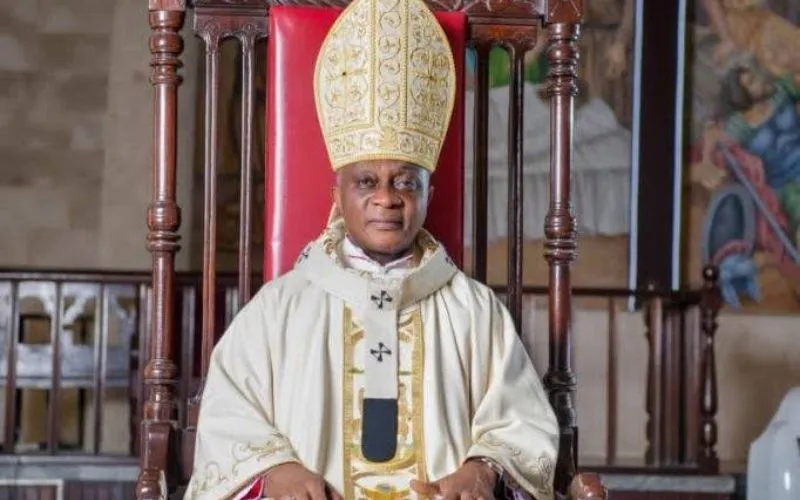He emphasizes the need for Nigerians to find the best solution to their country's challenges by working “collectively towards a more harmonious society as we seek and strive after justice and peace.”
“It is in these trying moments that the light within us, enkindled by our shared values and bound by our common humanity, must shine even more brilliantly,” the Catholic Archbishop says.
He recognizes the ability of his compatriots, saying, “We possess the power to sow the seeds of peace that will grow into a garden of understanding, tolerance, and unity.”
The Local Ordinary of Lagos explains that working for peace “necessitates being immersed in the life of our communities and practicing patience, tolerance and forgiveness in our daily lives.”
“Peace is a sacred and invaluable gift that we are called to pursue and nurture actively. Peace is not a passive state but an ongoing and dynamic process that demands perpetual attention and constant effort to attain and maintain,” he says.
He further describes peace as “a virtue we must cultivate within ourselves and our communities, recognizing that only when we are at peace within that we can effectively labor for peace in the world.”
The Catholic Archbishop goes on to note that peacebuilding needs efforts such as “creating communities of peace where everyone is welcome and accepted, supporting organizations that promote peace, speaking out against violence and injustice, and striving for a more just society with equal access to basic necessities are vital steps.”
The 64-year-old Catholic Church leader who started his Episcopal Ministry in January 1998 as Bishop of Nigeria’s Abeokuta Diocese emphasizes the need to address ethnic tensions, which he says are fuelled by misunderstandings and historical complexities before they develop into “more significant conflicts.”
The values of love, compassion, and forgiveness shared through Christianity, Islam, or rooted in tradition can spur Nigerians to embrace each other, he says.
Archbishop Adewale explains, “When we come together guided by the values of our faiths, we find a resonance that goes beyond the discordant notes of our differences. Hope becomes the catalyst for transformation, fostering an unwavering belief in the possibility of a brighter tomorrow where peace reigns supreme.”








